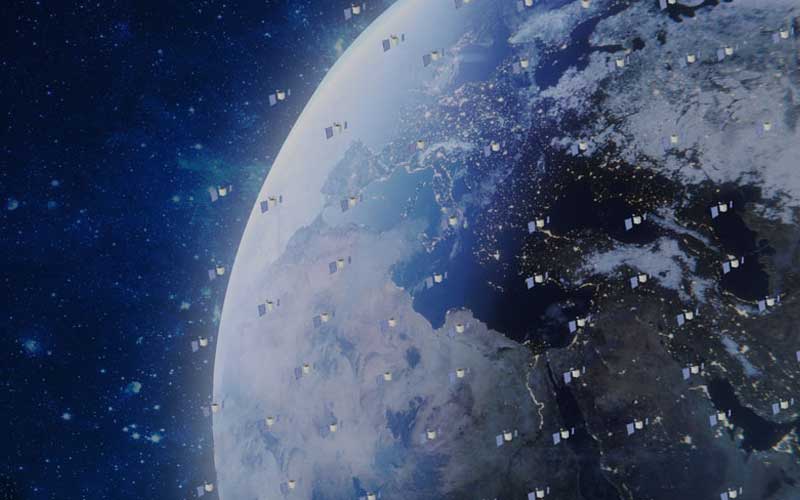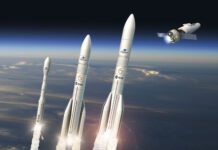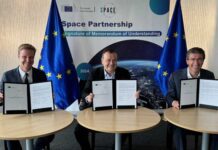
The European Commission has announced that it has awarded the contract to build its IRIS2 satellite communications megaconstellation to the SpaceRISE consortium, led by SES, Eutelsat, and Hispasat.
IRIS2 (Infrastructure for Resilience, Interconnectivity, and Security by Satellite) is a European Union satellite project aimed at providing sovereign, secure, and resilient communication services across Europe and beyond. The constellation of satellites will be comprised of over 290 individual satellites in various orbits and the associated ground infrastructure. While the system will initially be used to service governmental users, it will also have the capacity for commercial applications.
On 31 October, the European Commission announced that after evaluating an “optimised best-and-final offer,” it had selected to accept the SpaceRIDE consortium bid. The signing of the 12-year concession contract to finalize the agreement is expected to be signed before the end of the year.
In addition to the three consortium members, the project will include contributions from several subcontractors, including Thales Alenia Space, OHB, Airbus Defence and Space, Telespazio, Deutsche Telekom, Orange, Hisdesat, and Thales SIX.
According to a 31 October press release, the European Commission aims to have the IRIS2 service up and running by 2030. The project was initially expected to cost approximately €6 billion, of which the European Commission would provide 60%, with the rest being covered by private industry. However, recent reports have indicated that the project’s budget will likely reach as much as €10 billion.




